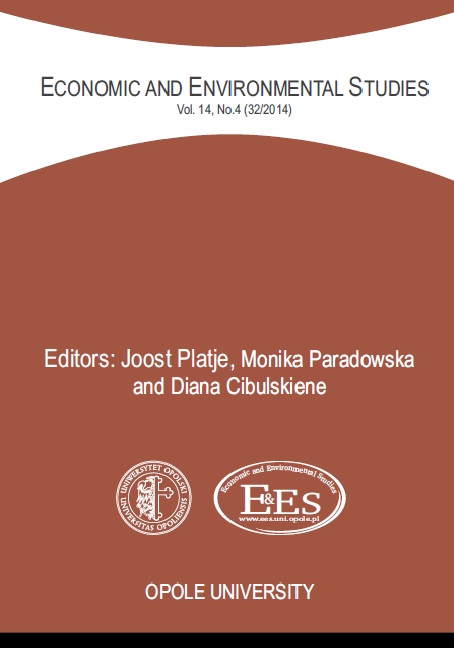The use of the SWOT analysis method to assess the importance of environmental potential in the regional development processes – the case of Lubelskie voivodship (Poland)
The use of the SWOT analysis method to assess the importance of environmental potential in the regional development processes – the case of Lubelskie voivodship (Poland)
Author(s): Armand KasztelanContributor(s): Monika Paradowska (Editor), Diana Cibulskienė (Editor), Joost (Johannes) Platje (Editor)
Subject(s): Economy, Energy and Environmental Studies
Published by: Uniwersytet Opolski
Keywords: regional development; environmental protection; competitiveness; the SWOT analysis; Lublin voivodship
Summary/Abstract: A relatively clean environment is an important growth factor, which typically possess less developed regions. The proper use of this asset can be a lever for a regional development, ensuring prosperity for the residents as well as the advantage over other regions. The aim of the study was to assess the environmental potential for the development of Lublin province , using the SWOT (Strengths-Weaknesses-Opportunities-Threats) analysis method . Also, the author's intention was to show how the SWOT analysis method can be used to formulate development strategy of the region. The analysis leads to the conclusion that despite numerous weaknesses and threats, Lubelskie voivodeship is characterized by a relatively good environmental potential creating chances for specialization in those forms of economic activity which are based on the use of natural capital.
Journal: Economic and Environmental Studies
- Issue Year: 14/2014
- Issue No: 4 (32)
- Page Range: 461-472
- Page Count: 12
- Language: English

